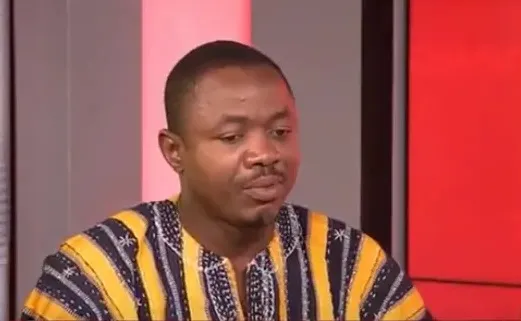The controversy surrounding a viral video depicting Sammy Gyamfi, Acting CEO of the Ghana Gold Board, seemingly handing over US dollars to Evangelist Patricia Asiedua Asiamah, also known as Nana Agradaa, has ignited a political firestorm in Ghana. The Minority in Parliament has vehemently called for Gyamfi’s immediate suspension, characterizing the act as unbecoming of a public official. However, Prof. Titus Beyuo, Member of Parliament for Lambussie, has countered these demands, arguing that they are politically motivated and lack legal basis. He acknowledges the unfortunate optics of the situation but emphasizes that no legal infraction has occurred, thus precluding the need for suspension or disciplinary action.
Prof. Beyuo argues that while Gyamfi’s actions may be perceived as indiscreet, they do not constitute a violation of any specific regulations that warrant punitive measures. He maintains that Gyamfi himself recognized the potential negative implications of his actions, acknowledging the potential damage to the government, appointing authority, and the public he serves. This acknowledgment, according to Prof. Beyuo, demonstrates a sense of responsibility and understanding of the potential repercussions of his actions. This admission of indiscretion, however, doesn’t automatically translate into grounds for suspension.
The crux of Prof. Beyuo’s argument lies in the absence of a clear legal basis for the demanded suspension. He points to the lack of any specific offense within established regulations that corresponds to Gyamfi’s actions in the video. He emphasizes that disciplinary procedures must adhere to legal frameworks and cannot be arbitrarily implemented based solely on public perception or political pressure. This adherence to due process, he asserts, is crucial to upholding fairness and preventing the politicization of administrative decisions.
Furthermore, Prof. Beyuo criticizes the Minority’s call for suspension as baseless, suggesting that their motivation is rooted in political opportunism rather than genuine concern for proper conduct. He expresses confidence in the presidency’s handling of the situation, urging restraint and patience while the matter is being addressed through appropriate channels. He underscores the importance of allowing the due process to unfold without undue political interference, emphasizing that premature calls for punitive action undermine established procedures and potentially jeopardize a fair and impartial assessment of the situation.
The ongoing debate highlights the tension between public perception, political maneuvering, and the adherence to established legal procedures. While the optics of the video may appear questionable to some, Prof. Beyuo’s defense of Gyamfi centers on the critical principle of due process. He stresses that actions, even those perceived as indiscreet, must be evaluated against a clear legal framework to determine whether they constitute a violation warranting disciplinary action. This emphasis on adhering to established legal protocols underscores the importance of protecting individuals from arbitrary accusations and ensuring fairness in administrative proceedings.
In essence, Prof. Beyuo’s stance serves as a reminder of the necessity of maintaining due process within administrative and political spheres. His argument emphasizes that calls for disciplinary action, especially those emanating from political opponents, should be rooted in concrete legal grounds and not driven by mere public perception or political expediency. This insistence on upholding established procedures serves as a safeguard against the potential for politicized justice and ensures fairness and transparency in addressing such controversies. The ultimate resolution of this issue, therefore, rests on a careful examination of existing regulations and a dispassionate evaluation of Gyamfi’s actions within that context. This approach, as advocated by Prof. Beyuo, ensures that decisions are grounded in law and not influenced by political pressures, preserving the integrity of administrative processes and protecting the rights of individuals involved.














